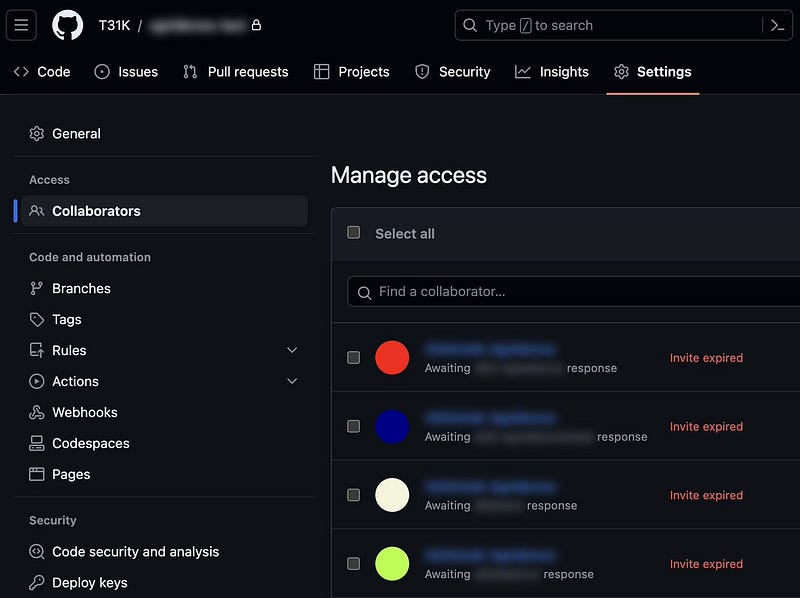# Rethinking Tech Interviews: A Call for Change in Hiring Practices
Written on
Chapter 1: The Interview Journey
A few years ago, I set out on a path that many in the tech field know well. It started with enthusiasm when I received a coding assignment to complete at home, with just three days to finish it. This was my chance to shine and potentially secure a sought-after job offer.
Determined to maximize my efforts, I fully committed to the task, turning my weekend into an intense coding session. I opted for takeout meals—not for indulgence, but to save every possible minute for coding. Every line was carefully written, each function optimized until I had what I believed was a stellar project, one that would surely land me the position.
After submitting my work, I waited eagerly for a response. However, my anticipation quickly shifted to disappointment when the email arrived, bearing the cold message: “Thank you for your interest in our company. We regret to inform you that you have not been shortlisted for the role.” The sting of rejection was hard to bear, but what followed felt like a deeper betrayal.
In my search for constructive feedback, I checked my GitHub repository, hoping for some engagement. Instead, I found that my invitation had gone ignored, leaving me feeling utterly devalued.

All my effort and hope seemed wasted. It's disheartening that the industry continues to depend on processes that often overlook the genuine capabilities of skilled candidates. When I shared my experience on Twitter, it resonated with many, garnering over 700k impressions from those who shared my frustration.
Section 1.1: Why Tech Interviews Are Flawed
Here’s my perspective on why tech interviews, irrespective of position, are fundamentally broken:
- Irrelevance to Daily Tasks:
- Overlooking Soft Skills: Strong communication and teamwork are what distinguish average software engineers from exceptional ones. Sure, you might ace a Fibonacci algorithm in C, but can you collaborate effectively with a team of engineers and a product manager?
- Unrealistic Scenarios: Questions like “Describe a time you had to reverse a linked list in C++ during your job” are absurd. The truth is, you likely never encountered such a situation.
The focus of interview coding questions often leans towards theoretical scenarios, which are far removed from real-world challenges. Today, numerous tools exist to automate basic tasks, enabling developers to focus on solving complex problems. Yet, interviews remain fixated on over-engineering solutions that aren't necessarily practical, favoring candidates who can merely memorize textbook responses.
- Excessive Time Investment:
- Lengthy Processes: The standard interview sequence often includes four coding rounds, two system design discussions, a behavioral interview, and a casual chat over coffee. This lengthy process requires an immense time commitment from candidates without any guarantee of a job offer or return on investment.
- Questionable Fairness: Take-home assignments have become increasingly common. These tasks demand significant time and effort under tight deadlines, only for the completed work to sometimes go unreviewed. This raises questions about respect for candidates’ time and fairness in the interview process.
- Lack of Improvement Opportunities:
- No Feedback Provided: Candidates often wait weeks to learn the outcome of their interviews. Without concrete feedback, they struggle to identify areas for improvement or understand their mistakes, leading to repeated errors in subsequent interviews.
- Increased Guesswork: The absence of feedback forces candidates to speculate about what they need to focus on for future interviews, which can lead to wasted time honing irrelevant skills.
Conclusion: A Call for Change
This article might read like a lament from a frustrated candidate fed up with a broken system—and it is. Having experienced both sides of the interview table, I wholeheartedly believe the current process is fundamentally flawed.
We must develop a more effective way to evaluate candidates, moving beyond irrelevant coding questions that ultimately lead to disillusionment. The focus should shift toward assessing practical skills, problem-solving abilities, and adaptability. Most importantly, we need to establish better standards that respect candidates’ time and efforts.
To all those preparing for interviews, I wish you the best of luck. The system may be broken, but continue to strive and persevere. When you reach your goals, remember your journey and work to break this cycle of inefficiency.